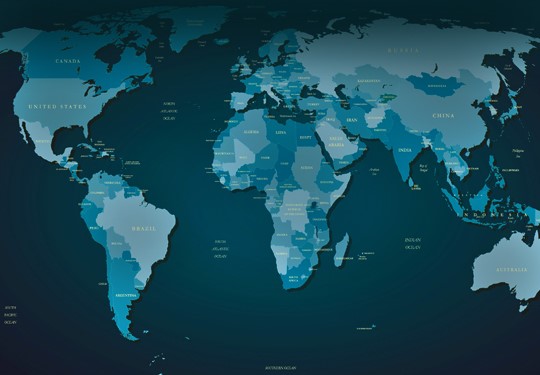The King Abdullah City for Atomic and Renewable Energy (K.A.CARE) serves as the Kingdom of Saudi Arabia’s national energy laboratory for atomic, solar, wind, geothermal, and other emerging renewable energy technologies. Its mission is to contribute to sustainable development in the Kingdom.
In late 2014, K.A.CARE launched a major initiative to design and implement enterprise-wide capabilities for knowledge management and institutional memory. K.A.CARE had grown rapidly since its founding in 2010, with a predominantly young staff of highly qualified engineers, scientists, and experts in the financial and legal fields. The organization’s senior leadership team knew there was an urgent need to promote knowledge sharing across their wide range of research and entrepreneurial activities and to foster organizational learning and an open, collaborative culture. In addition, the rapid onboarding of new staff had created a need for a strong “institutional memory”—a way of conserving and retrieving the key decisions and thinking behind important events in the organization’s history.
Iknow was selected to develop K.A.CARE’s Knowledge Management and Institutional Memory program. The overall goals of the program were to:
- Build the knowledge management foundation and capabilities (people, process, and technology),
- Capture and organize K.A.CARE’s existing content,
- Publish and disseminate K.A.CARE studies to stakeholders and the general public, and
- Define the KM strategy, roadmap, and implementation plan.
Iknow conducted this assignment by performing a portfolio of 11 discrete work streams:
- Content Audit
- SharePoint 2013 Configuration
- Taxonomy and Metadata Development
- Content Cleansing, Migration, and Enrichment
- Publication Strategy
- KM Current-State Assessment
- Business and Technical Requirements Collection
- KM Strategy
- KM Governance Policies and Practices Design
- Knowledge Capture and Retention Design
- KM Roadmap (includes KM Team Organizational Structure).
The project began with a detailed content audit of K.A.CARE’s current knowledge repositories and a broad assessment of the organization’s other knowledge resources, knowledge sharing behaviors, and barriers to effective knowledge management. Iknow then collected business and technical requirements, driven by a combination of face-to-face interviews with the organization’s management group and surveys across all departments and functional areas.
As part of the Taxonomy and Metadata Development work stream, Iknow developed an enterprise-wide taxonomy and metadata schema for classifying all aspects of the organization’s activities and documents. In parallel, we collected a range of deliverables from previous K.A.CARE projects and constructed a historical events timeline. This timeline served as the framework for capturing the organization’s institutional memory.
The first phase of the work concluded with a comprehensive strategy, detailed recommendations for the future-state KM policies, practices, metrics, and governance mechanisms, and a complete implementation roadmap.
Iknow produced more than 100 separate deliverables for K.A.CARE. Some of more important deliverables include:
- Content audit
- Current-state assessment that documented the current status of K.A.CARE’s knowledge management activities and established the baseline to measure future improvements
- Customized metadata schema, controlled vocabularies, and a hierarchical taxonomy with related terms
- Business and technical requirements
- Recommendations for KM governance policies and practices
- Single content repository implemented in Microsoft SharePoint 2013
- Several technical pilots including project team collaboration, enterprise content management, search, and an interactive timeline for institutional memory
- Initial set of finished K.A.CARE publications
- A comprehensive roadmap, with implementation priorities and ranked projects
Key benefits anticipated from the knowledge management work streams include:
- Speed of response to business opportunities
- Quality of output and decision making based on knowledge of previous work
- Greater efficiency from re-use of data, approaches, models, and tools
- Stronger organizational alignment from cross-sector awareness of projects and activities
- Improved collaboration and teamwork
- Improved employee engagement and morale at every level.
Key benefits anticipated from the institutional memory work streams include:
- Retain the knowledge of how and why K.A.CARE has evolved as it has, regardless of employee retirement and turnover
- Make this knowledge retention consistent and repeatable as additional milestones are achieved
- Optimize onboarding and training time and effectiveness
- Improve new employee productivity and decision making through better contextual understanding.
K.A.CARE used the results of this project to secure funding for a 18-month implementation project.


